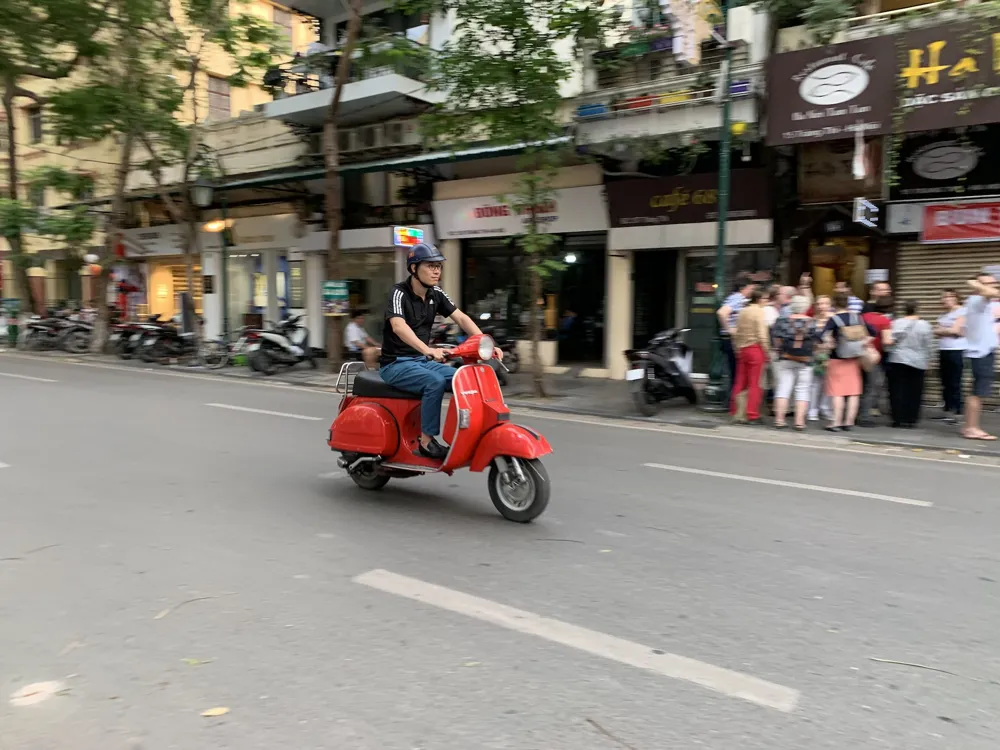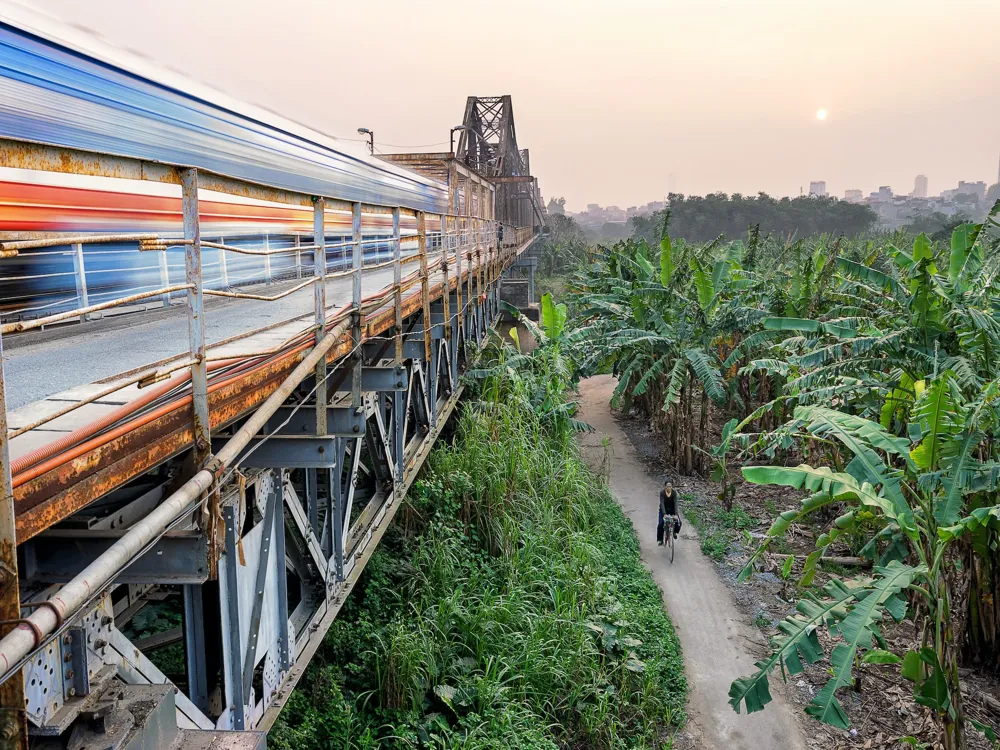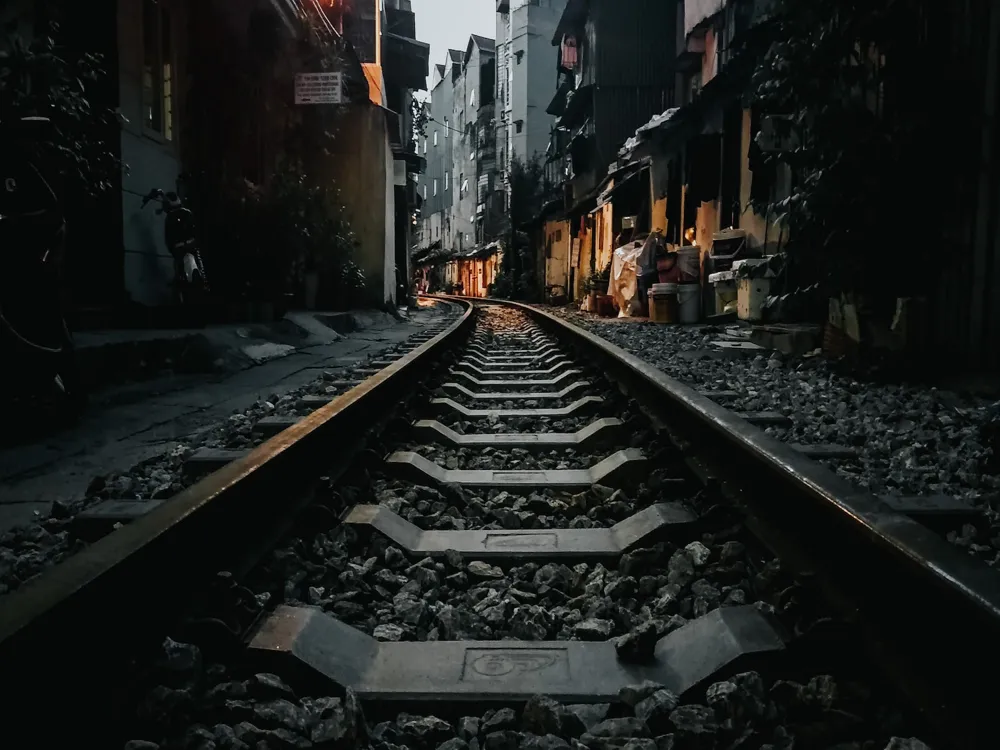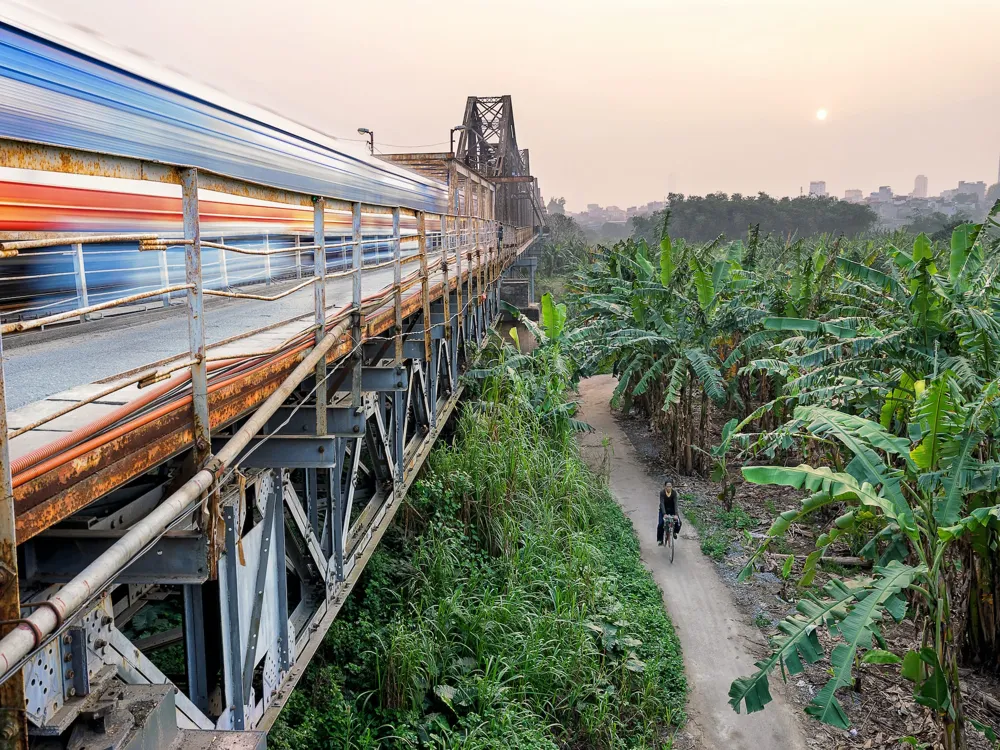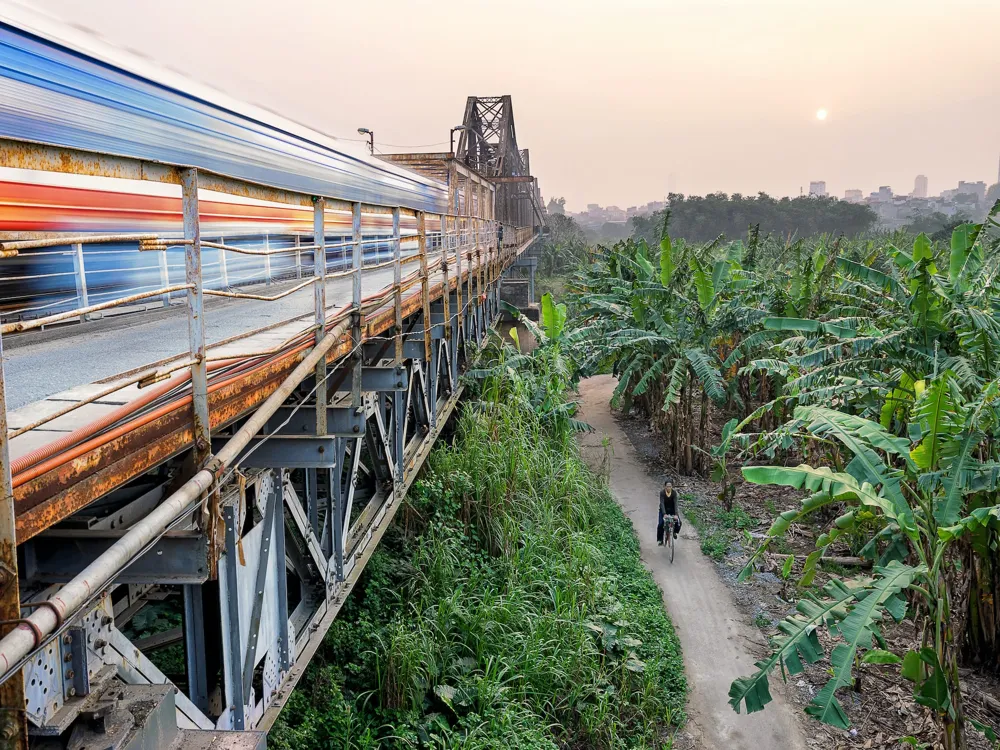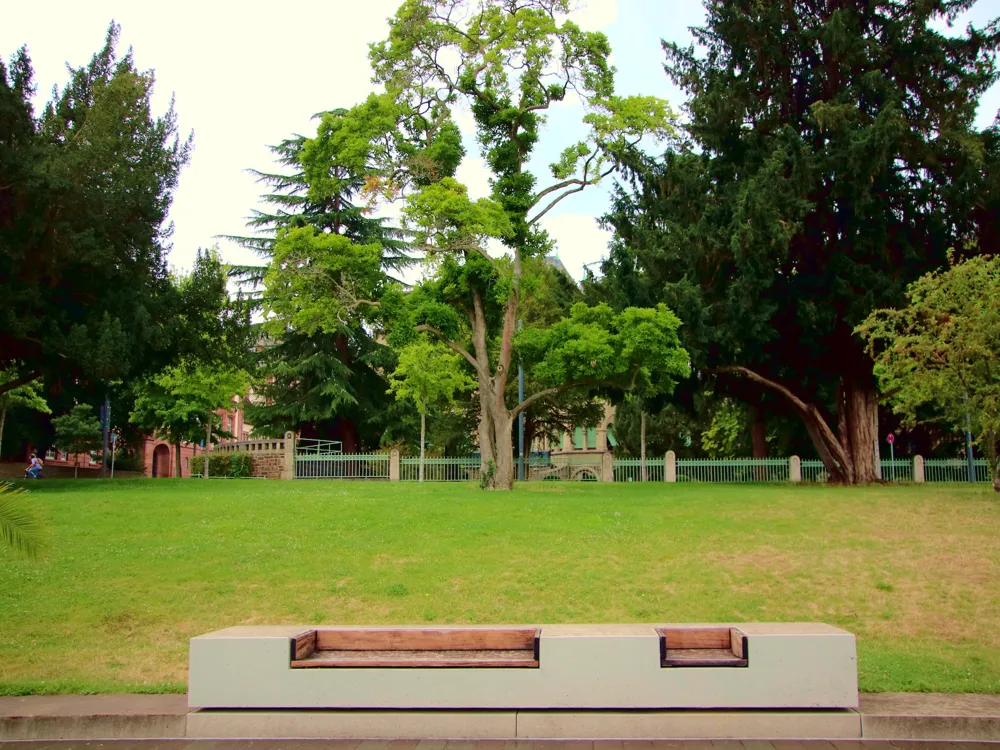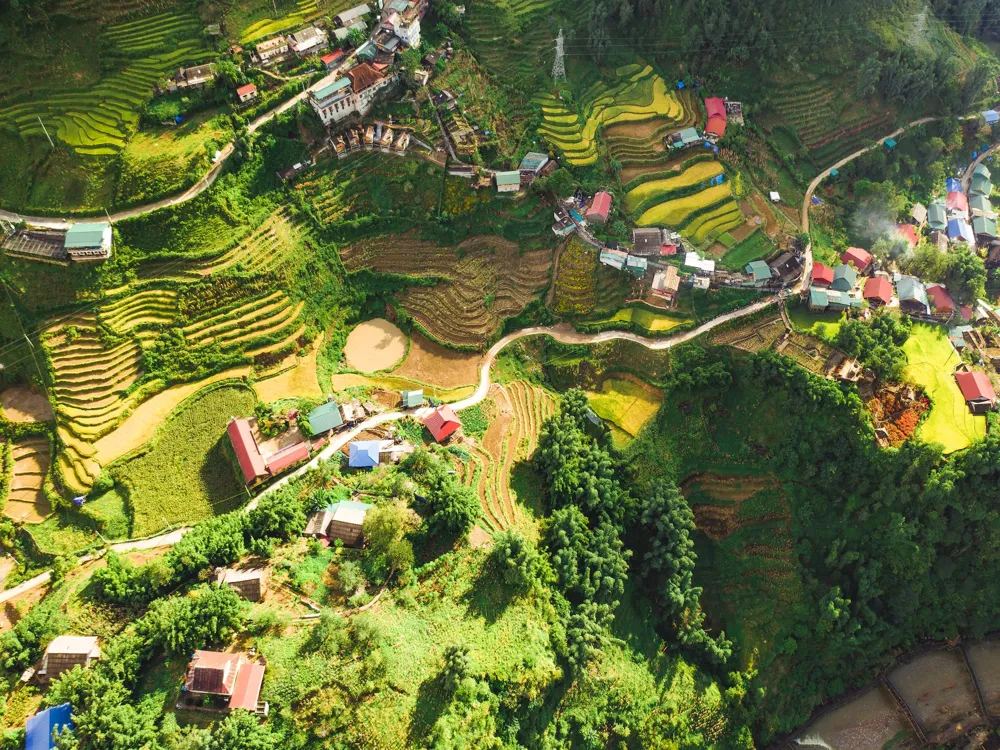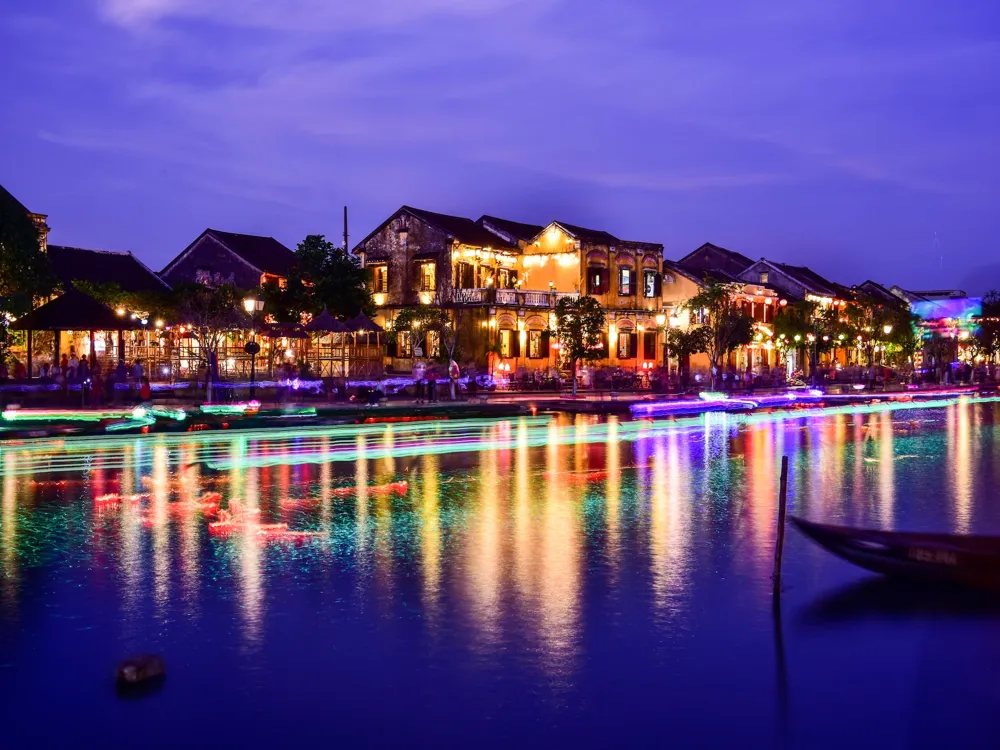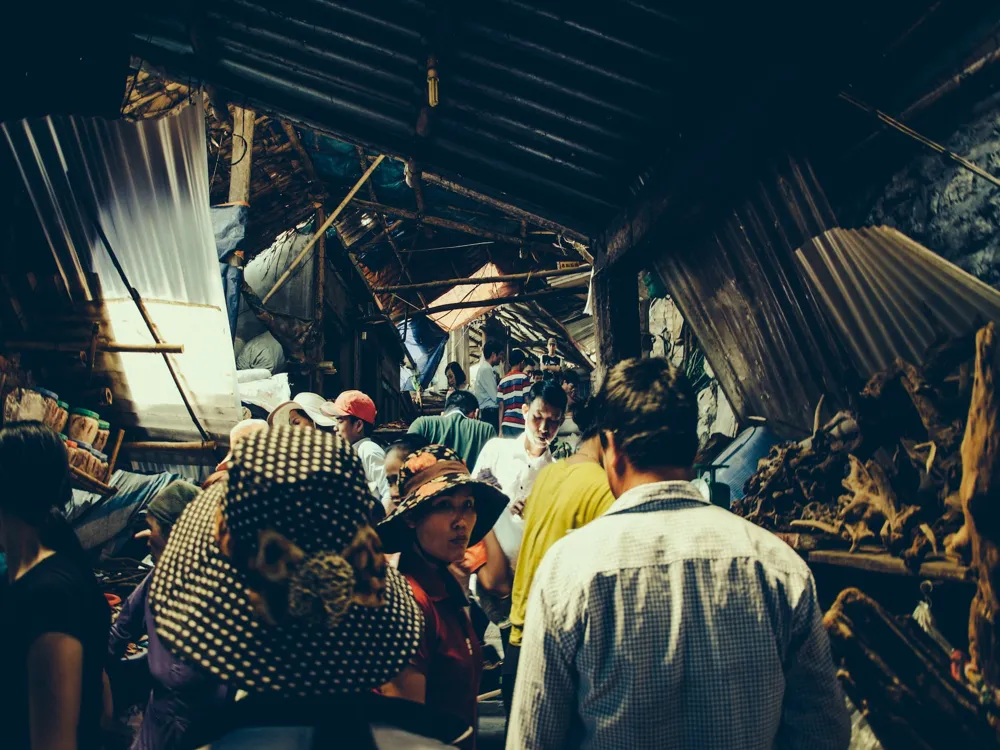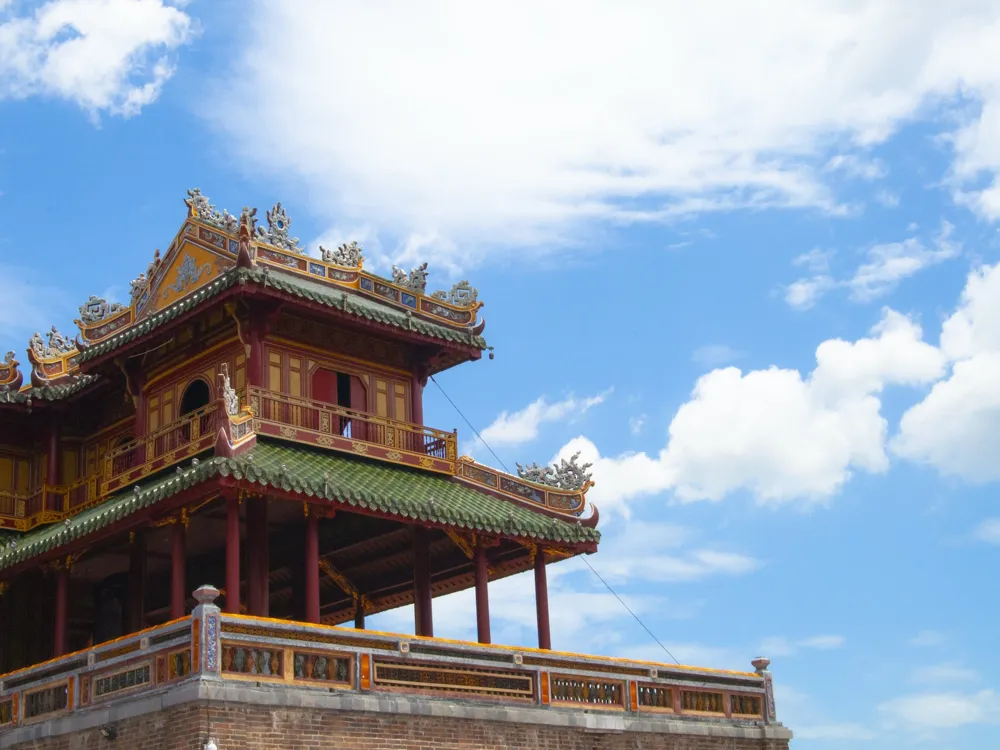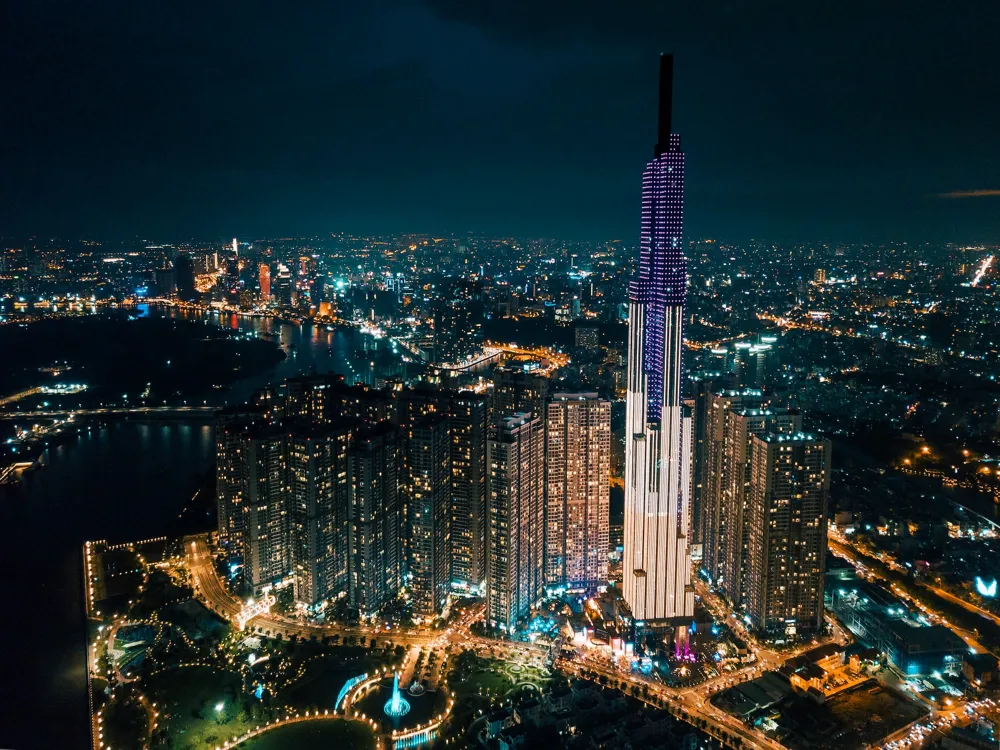Hanoi, the capital city of Vietnam, is a fascinating blend of East and West, combining traditional Sino-Vietnamese motifs with French flair. It's a city where the past coexists with the present; ancient temples stand alongside bustling modern streets. Hanoi is not just a city, but a testament to Vietnam's rich history and cultural heritage. The city's story dates back over a thousand years, and this longevity is reflected in its architecture, cuisine, and customs. One of the most striking aspects of Hanoi is its vibrant street life - the streets are alive with vendors, pedestrians, and an uncountable number of scooters, all coming together to create a dynamic and colorful atmosphere. This city is not just a place to visit; it's an experience to immerse yourself in, offering a unique window into Vietnam's past and present.
Hanoi has served as a vital political center for centuries, enduring through various dynasties, colonial periods, and modern-day developments. It was the capital of French Indochina from 1902 to 1954, and this period left a lasting architectural imprint on the city. The city's Old Quarter and French Quarter are living museums, showcasing the confluence of Vietnamese and French cultures. The Ho Chi Minh Mausoleum and the Imperial Citadel of Thang Long are just a few examples of the city's rich historical tapestry, illustrating Hanoi's role in Vietnam's fight for independence and its ongoing journey.
Hanoi's culture is as diverse as its history. The city is a hub for Vietnamese arts, including traditional music, theater, and fine arts. It's home to various museums and galleries that exhibit Vietnam's artistic heritage, from ancient sculptures to contemporary paintings. The city's culinary scene is another highlight, offering an array of flavors from street food stalls to high-end restaurants. Pho, the famous Vietnamese noodle soup, has its roots in Hanoi, and tasting it here is a must-do for any visitor. The city's social life revolves around its cafes and tea houses, where residents engage in leisurely conversations, reflecting the laid-back aspect of Hanoi's lifestyle.
In recent years, Hanoi has seen rapid modernization. The skyline is increasingly dotted with high-rises, and the city is expanding with new residential and commercial developments. However, this growth is balanced with a commitment to preserving Hanoi's heritage and environment. Efforts are underway to maintain its historic sites and green spaces, ensuring that the city's growth does not come at the cost of its soul. The blend of old and new is what makes Hanoi an endlessly fascinating place to explore.
The architecture of Hanoi is a vivid illustration of the city's history and cultural influences. From ancient temples and colonial buildings to modern skyscrapers, the city's architecture is as diverse as its history. This architectural diversity is not just a feature of the city; it tells the story of Hanoi, reflecting its past and present, its struggles and triumphs.
The heart of Hanoi's architectural heritage lies in its ancient buildings, which date back to its early days as a center of power. The Temple of Literature, built in 1070, is a prime example. It's not just a historic site but a symbol of Vietnam's educational and literary achievements. The temple's traditional Vietnamese architecture, with its courtyards, gates, and pavilions, offers a glimpse into the past. Similarly, the One Pillar Pagoda and the Hanoi Citadel are other ancient structures that display the intricacy and uniqueness of Vietnamese architectural design.
The French colonial period left a significant architectural imprint on Hanoi. This influence is most evident in the French Quarter, where streets are lined with grand colonial villas and buildings. The Hanoi Opera House, inspired by the Palais Garnier in Paris, and St. Joseph's Cathedral, a neo-Gothic structure, are standout examples of this era. These buildings, with their distinct European style, add a unique character to Hanoi's architectural landscape.
In recent decades, Hanoi has embraced contemporary architectural styles. The city's skyline is increasingly characterized by modern skyscrapers and commercial developments. These new structures, with their innovative designs and sustainable features, represent Hanoi's aspirations as a growing global city. Notable examples include the Lotte Center Hanoi and the Keangnam Hanoi Landmark Tower, which blend modern architectural principles with local aesthetics.
The best time to visit Hanoi is during the spring (February to April) and autumn (September to November) months. During these times, the weather is pleasant with moderate temperatures, making it ideal for exploring the city.
Navigating Hanoi can be challenging due to its busy streets. Opt for taxis or ride-sharing apps for convenience. For short distances, cyclos (three-wheeled bicycle taxis) offer a unique way to see the city.
Hanoi is famous for its street food. Don't miss trying local specialties like Pho, Banh Mi, and Egg Coffee. Be adventurous but also cautious about food hygiene.
When visiting temples and other religious sites, dress modestly and show respect. It's also polite to remove your shoes when entering someone's home or certain traditional establishments.
Hanoi is accessible by air, with the Noi Bai International Airport connecting the city to various global destinations. For regional travel, trains and buses are viable options, offering a scenic route to the city. Once in Hanoi, the city's comprehensive public transport system, including buses and an upcoming metro line, makes getting around straightforward and affordable.
Overview of Hanoi
Historical Significance
Cultural and Social Fabric
Modern Developments
Architecture of Hanoi
Ancient Architectural Influences
French Colonial Architecture
Contemporary Architecture
Tips When Visiting Hanoi
Best Time to Visit
Transportation Tips
Local Cuisine
Cultural Etiquette
How To Reach Hanoi
Thang Long Water Puppet Theater
Hanoi
₹ 15,260 onwards
View hanoi Packages
Weather :
Tags : Shows & Theatres
Timings : Shows at 3:00 PM, 4:10 PM, 5:20 PM, 6:30 PM, 8:00 PM
Time Required : 1-2 Hours
Entry Fee : Adults: VND 100,000Children under 1.2 mts: VND 60,000
Planning a Trip? Ask Your Question
Hanoi Travel Packages
View All Packages For Hanoi
Top Hotel Collections for Hanoi

Private Pool

Luxury Hotels

5-Star Hotels

Pet Friendly
Top Hotels Near Hanoi
Other Top Ranking Places In Hanoi
View All Places To Visit In hanoi
View hanoi Packages
Weather :
Tags : Shows & Theatres
Timings : Shows at 3:00 PM, 4:10 PM, 5:20 PM, 6:30 PM, 8:00 PM
Time Required : 1-2 Hours
Entry Fee : Adults: VND 100,000Children under 1.2 mts: VND 60,000
Planning a Trip? Ask Your Question
Hanoi Travel Packages
View All Packages For Hanoi
Top Hotel Collections for Hanoi

Private Pool

Luxury Hotels

5-Star Hotels

Pet Friendly







